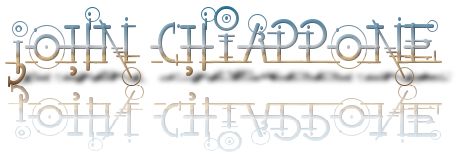|
ANCIENT GREECE

|
1. AFRICA |
5. LYDIA / TURKEY |
9. MACEDONIA |
|
2. EGYPT |
6.
SPARTA |
10. ELEA |
|
3. JERUSALEM |
7. DELPHI |
11. ROME |
|
4. ATHENS GREECE |
8. MILETUS |
12. IONIA |
|
|
|
13. MOUNT OLYMPUS |
PRESENTATION

Socrates and his Daimon by Eug่ne Delacroix
The
ancient Greek daimons or muses were mythological
godlike beings that inspired people. The Romans used
the term genius. During the Renaissance the concept
was changed. A genius was no longer an external
source of inspiration; it was an internal quality of
a person of great ability.
The
Greek poets wrote of gods who oversaw everything.
They were responsible for the order, and disorder,
of the world. Socrates believed there were essences
for everything
HESIOD:

Gustave Moreau, Hesiod and the
Muse
Hesiod's epic poems the Theogony and the Works and
Days are the first attempts to explain the creation
of the world. According to Hesiod, in the beginning
there was Chaos, a great void, or nothingness. Out
of the void emerged Gaia (Earth), Eros (Love), and
the Abyss (Tartarus). Gaia gave birth to Oranos
(Sky) - who fertilized her, and so the Titans were
born. There were six males: Cronus, Coeus, Crius,
Hyperion, Iapetus, and Oceanus. There were also six
females: Rhea, Mnemosyne, Phoebe, Theia, Themis, and
Tethys. Later the Cyclopes were born.
Cronus castrated his father, and his sister/wife
Rhea ruled over the Gods.
Cronos feared that his children would betray him as
he betrayed his father, so he ate them.
Rhea gave birth to
Zeus, hid him, and gave a stone wrapped in a blanket
for Cronus to eat. Zeus grew up, and drugged his
father. This caused Cronos to vomit up his children.
Zeus and his siblings imprisoned Cronos and the
Titans in Tartarus. This is how Zeus came to rule
over the Gods.
HOMER
(550-478BCE)

Homer
was an ancient Greek poet. He wrote the Iliad and
the Odyssey.
These are the oldest
known Greek literary sources. They focus on
the Trojan War.
HOMER'S
VIRTUES:
Success, Honor,
Power,
Wealth,
Moderation, and
Security
|
MASLOW'S HIERARCHY OF NEEDS
SELF
ACTUALIZATION - |
morality, creativity, spontaneity,
problem solving, lack of prejudice,
acceptance of facts |
|
ESTEEM
- |
self-esteem, confidence,
achievement, respect of others,
respect by others |
|
LOVE
- |
friendship, family, sexual intimacy |
|
SAFETY
- |
Security of: body, job, resources,
family, healthy, property, morality
|
|
PHYSIOLOGICAL
- |
breathing, drinking, eating,
excreting, sleep, sex, and
homeostasis |
|
QUESTIONS:
Is the order
ethnocentric?
Is the hierarchy
arbitrary?
Can we create a
hierarchy for Homer's Virtues.

The
Oracle of Delphi
FATE
|
